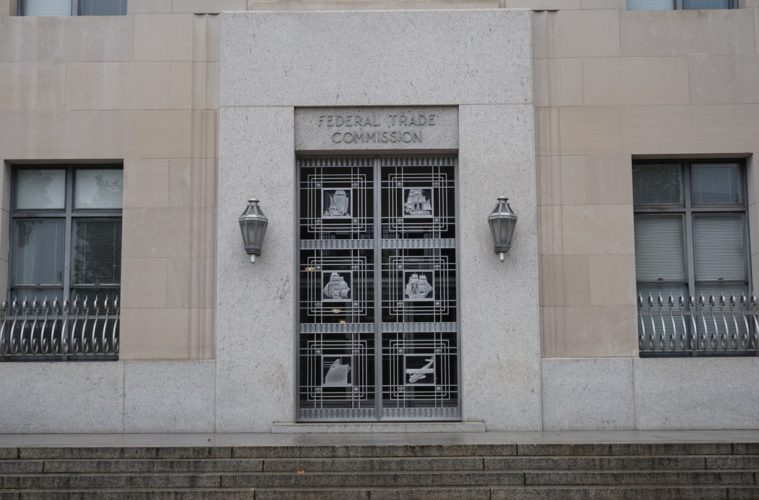As the U.S. government continues to crack down on over-the-top claims in the Gas Station CBD industry, the Federal Trade Commission has accepted an agreement with Reef Industries, Cannatera, AndHemp and their owners over the way the companies had previously marketed their cannabidiol products.
The government’s complaint alleged the companies violated multiple sections of the FTC Act. This included false and unsubstantiated promotional materials claiming, “CBD products can effectively prevent, cure, treat, or mitigate multiple diseases and other health conditions; and (2) studies or scientific research prove that CBD products effectively prevent, cure, treat, or mitigate multiple diseases and other health conditions,” read the announcement.
The agreement between the FTC and the companies doesn’t necessarily mean the companies are admitting guilt, it means they’ve agreed to a set of provisions with the FTC that would be court enforceable. The reason the FTC released an analysis of the complaint was to facilitate public comment on the order, which is not yet finalized.
The very first provision sets a testing mandate the products need to reach before the promotional claims can be made. It requires randomized, double-blind, placebo-controlled clinical testing for the challenged claims or any disease treatment, mitigation or cure claim for a “covered product.” The order defines “covered product” as any dietary supplement, food or drug including but not limited to CBD products or cannabigerol (CBG) products,” the provision reads.
The second provision prohibits other misleading or unsubstantiated representations about the health benefits, performance, efficacy, safety or side effects. Through the rest of the provisions, things like maintaining records and other nuts and bolts aspects of the agreement were covered.
FTC Commissioner Rohit Chopra said he believes when companies lie about the effectiveness of their treatments for serious conditions, this harms patients and diverts sales away from firms that tell the truth.
“I support these actions and congratulate those who made them a reality,” Chopra said. “Going forward, however, the FTC will need to refocus its efforts on health claims by targeting abuses in the substance use disorder treatment industry, shifting attention toward large businesses, and making more effective use of the FTC’s Penalty Offense Authority.”
We reached out to leading cannabis industry attorney Omar Figueroa to get his take on the language in the FTC announcement. Figueroa is a director of the National Cannabis Industry Association as well as a director of the California Cannabis Tourism Association and a founding lifetime member and former director of the International Cannabis Bar Association, a lifetime member of the NORML Legal Committee, and recognized with the Distinguished Counsel’s Award by NORML. It’s safe to say he has his head wrapped around these kinds of things.
Figueroa found one of the most interesting parts of the whole announcement to be how the feds were seemingly using this enforcement on CBD as prep work to establish standard operating procedures to go after big players in the substance abuse treatment industry. Most notable was Chopra noting he supported these actions in CBD, but that’s where the spotlight needs to move.
The head of the FTC continued on, saying they’re particularly concerned about abusive practices in the for-profit opioid treatment industry, and believe this should be a high priority.
“This industry has grown exponentially by profiting off those suffering from addiction,” Chopra said. “Many of these outfits use lead generators to steer Americans into high-cost, subpar treatment centers, and some even hire intermediaries – so-called ‘body brokers’ – who collect kickbacks from this harmful practice.”
Chopra said even though he’s been supportive of these actions around CBD, he’d like to see the FTC use its power on other substance abuse issues given the current scale of opioid use during the pandemic. He also spoke to a law passed two years ago that empowered the FTC to go after bad actors in the recovery industry.
“Unfortunately, the commission has brought zero cases under this new authority,” Chopra said. “While I have supported actions like this one that challenge baseless CBD claims, as well as previous actions charging that pain relief devices and similar products were sold deceptively, I am concerned that we have largely ignored congressional concerns about unlawful opioid treatment practices. I urge my fellow commissioners to change course on our enforcement priorities, especially given our limited resources.”
There is a lot to unpack for CBD companies there. Sure, part of it is the feds internally having conversations about other things they’re more worried about. But Figueroa noted this could also be construed as a shot across the bow. Essentially the idea is these three companies might be the last three to get a warning shot before more pressing actions.
We asked Figueroa if it were a safe bet the next company that the feds went after would end up in hotter water than the three in the agreement. “Exactly. Be on notice you can’t be making claims about medical efficacy,” he replied. Figueroa also reminded us the companies don’t even need to make these claims since a lot of these benefits are already perceived by the consumer, so what is the point of trying to cross the feds over it?
Advertising disclosure: We may receive compensation for some of the links in our stories. Thank you for supporting LA Weekly and our advertisers.

